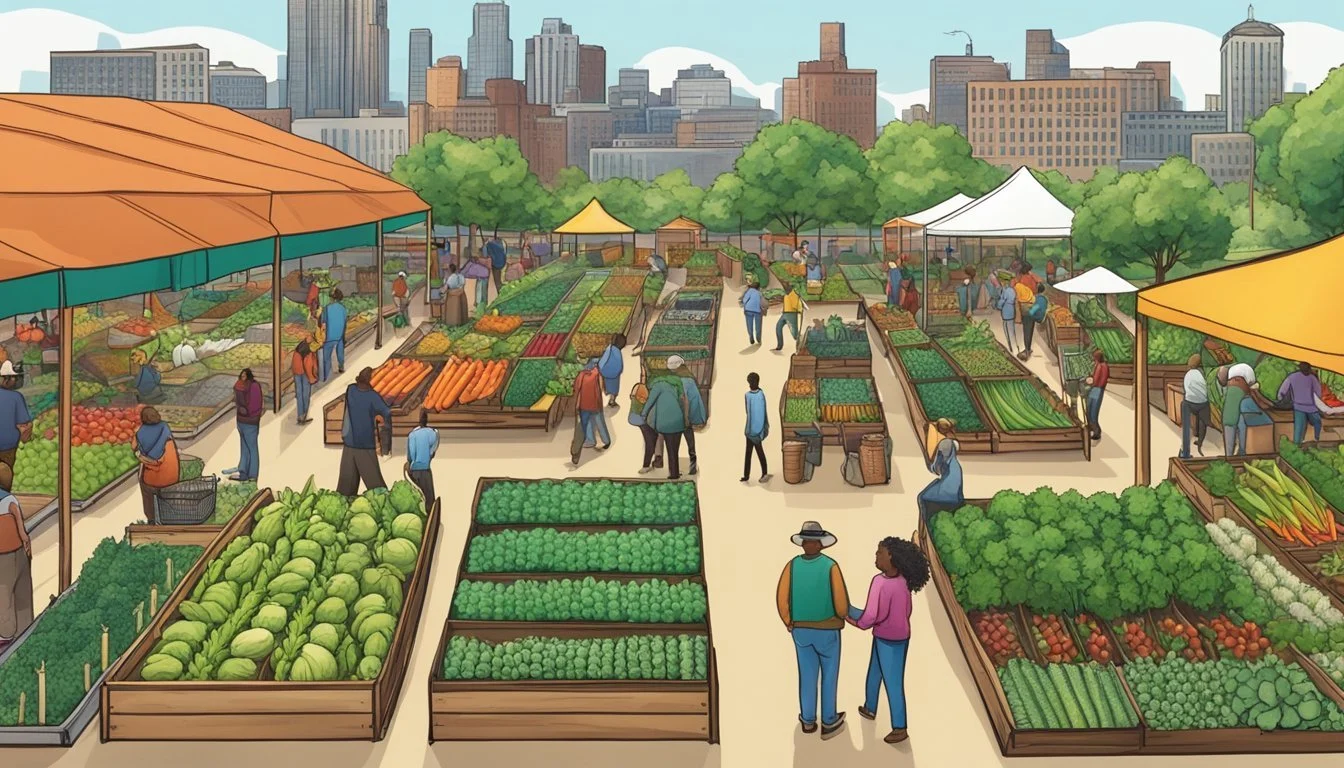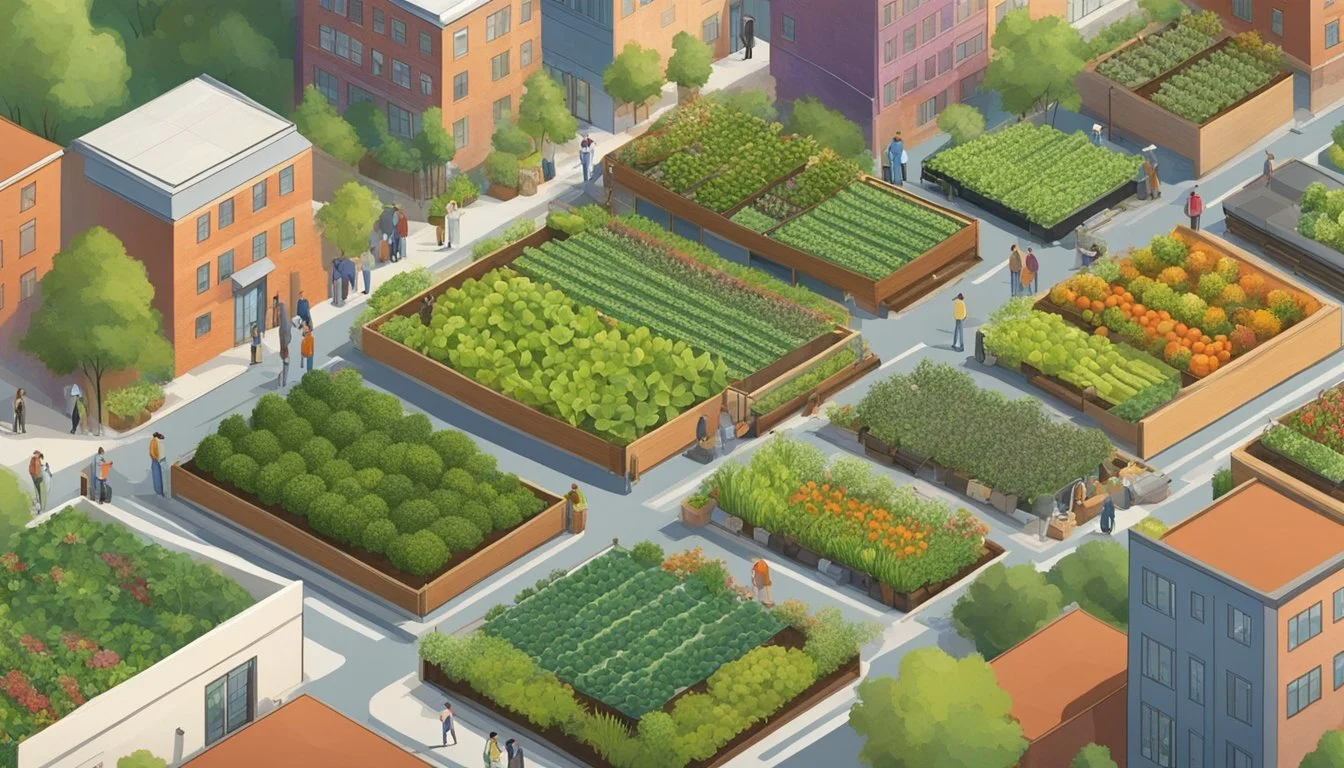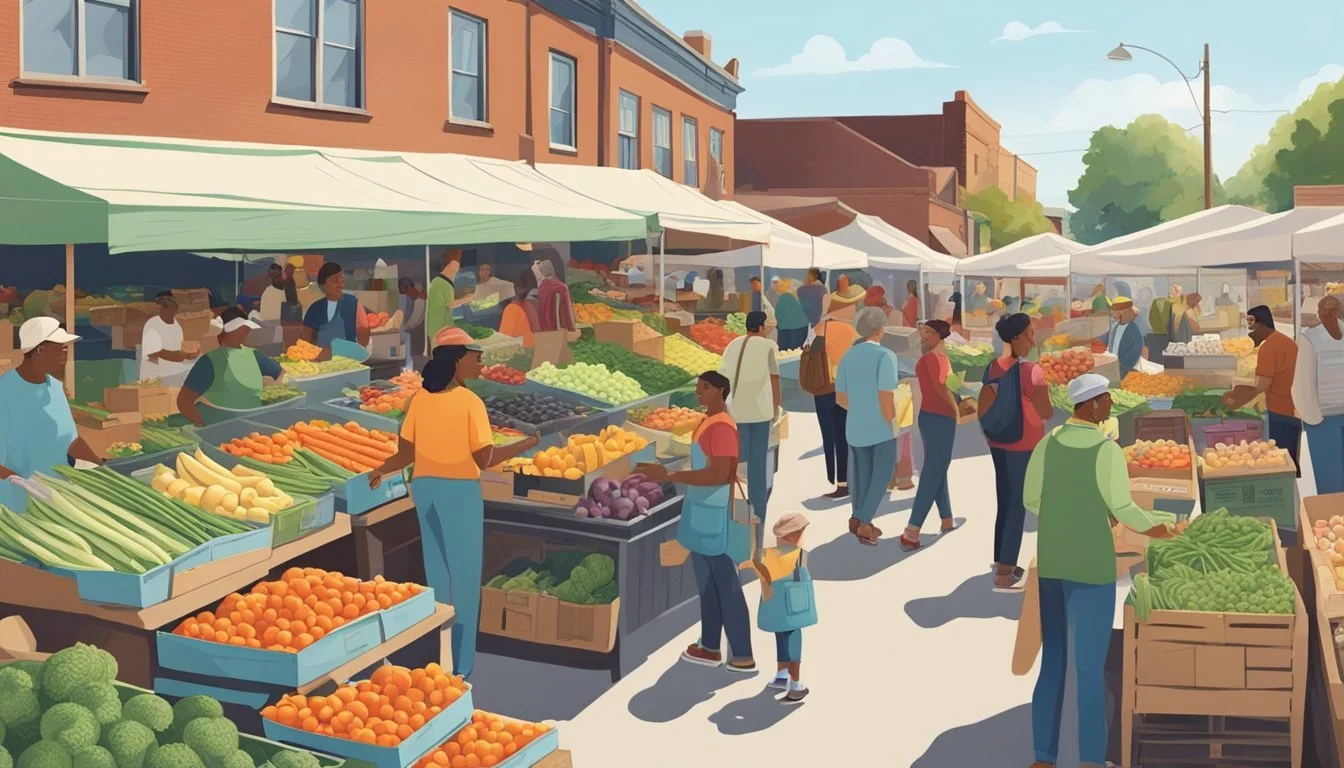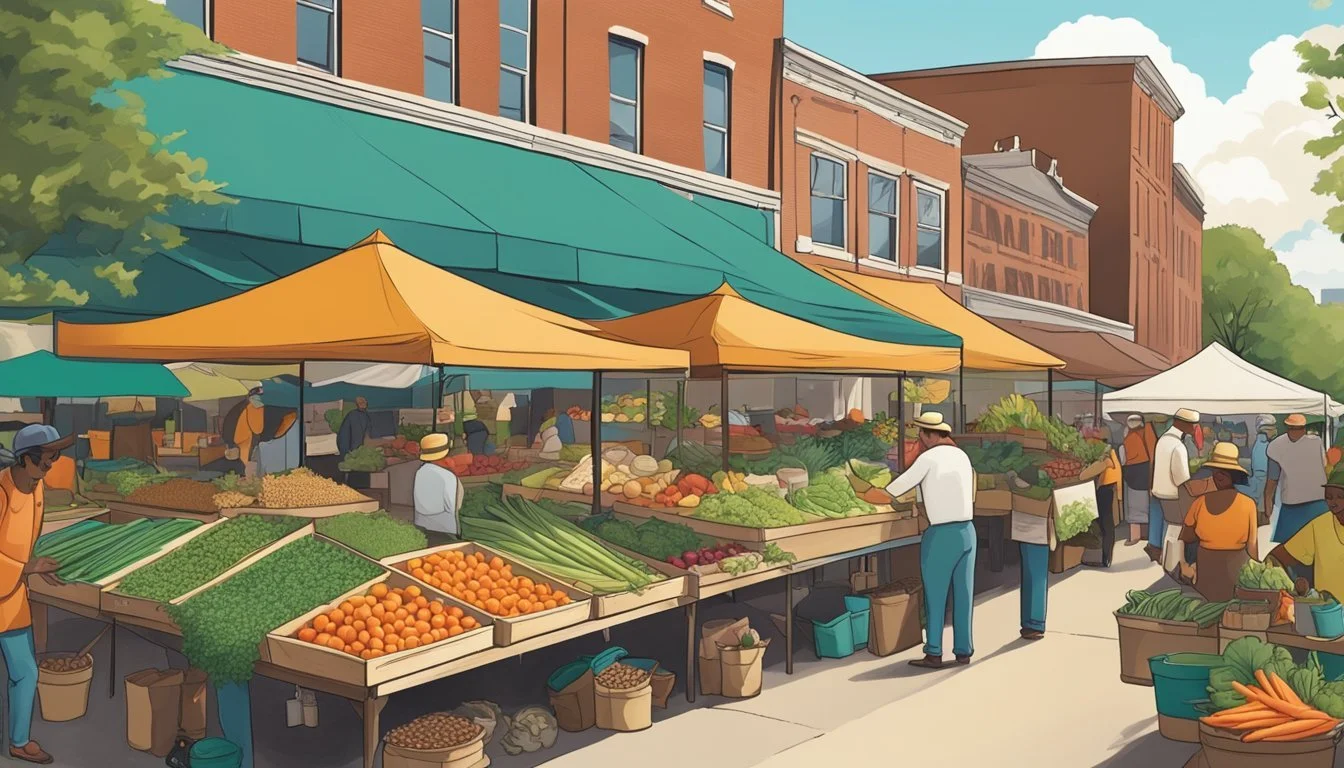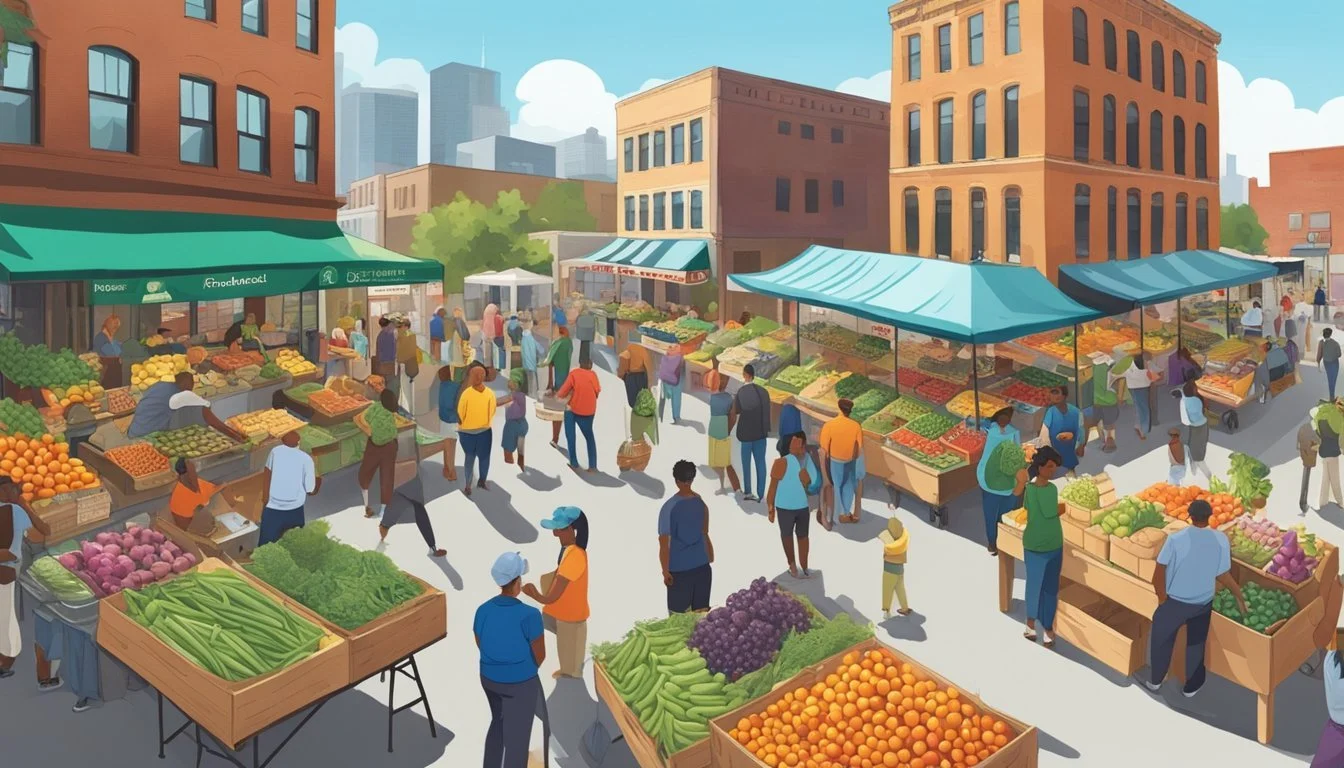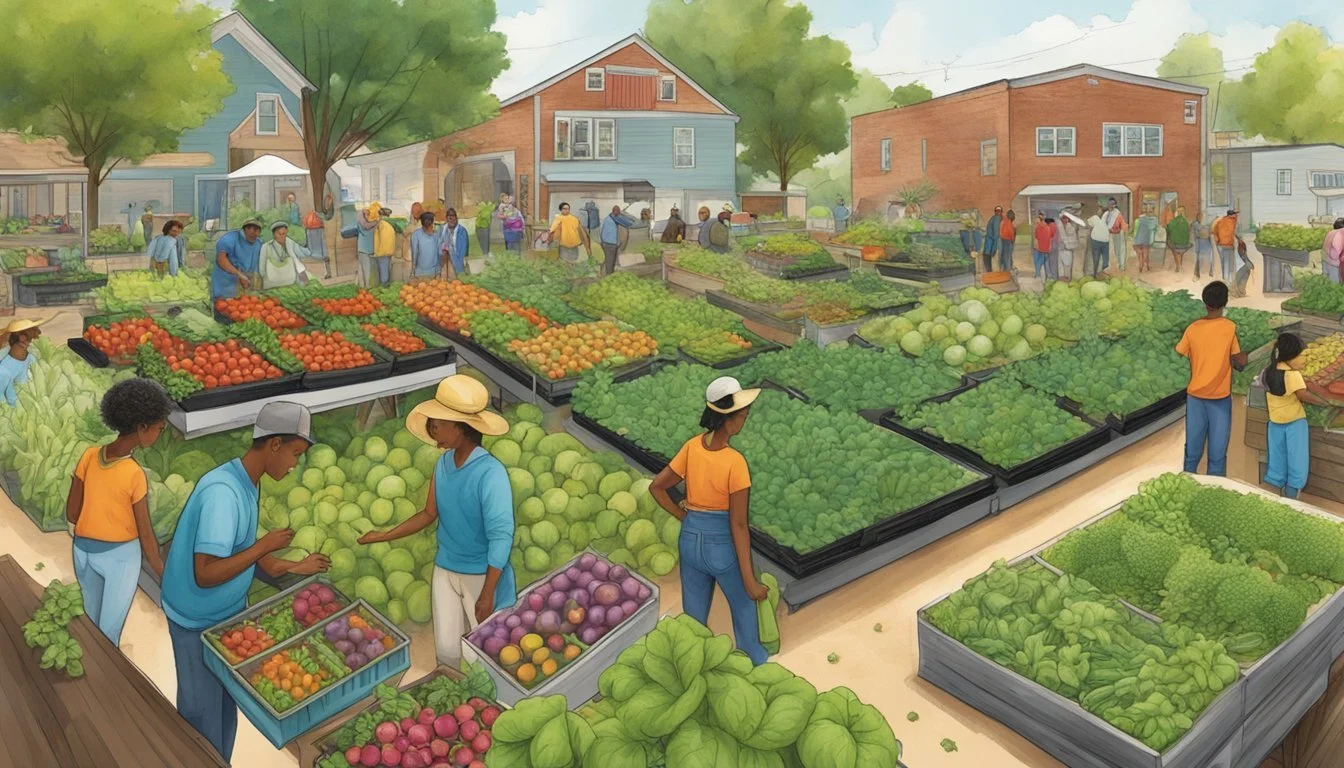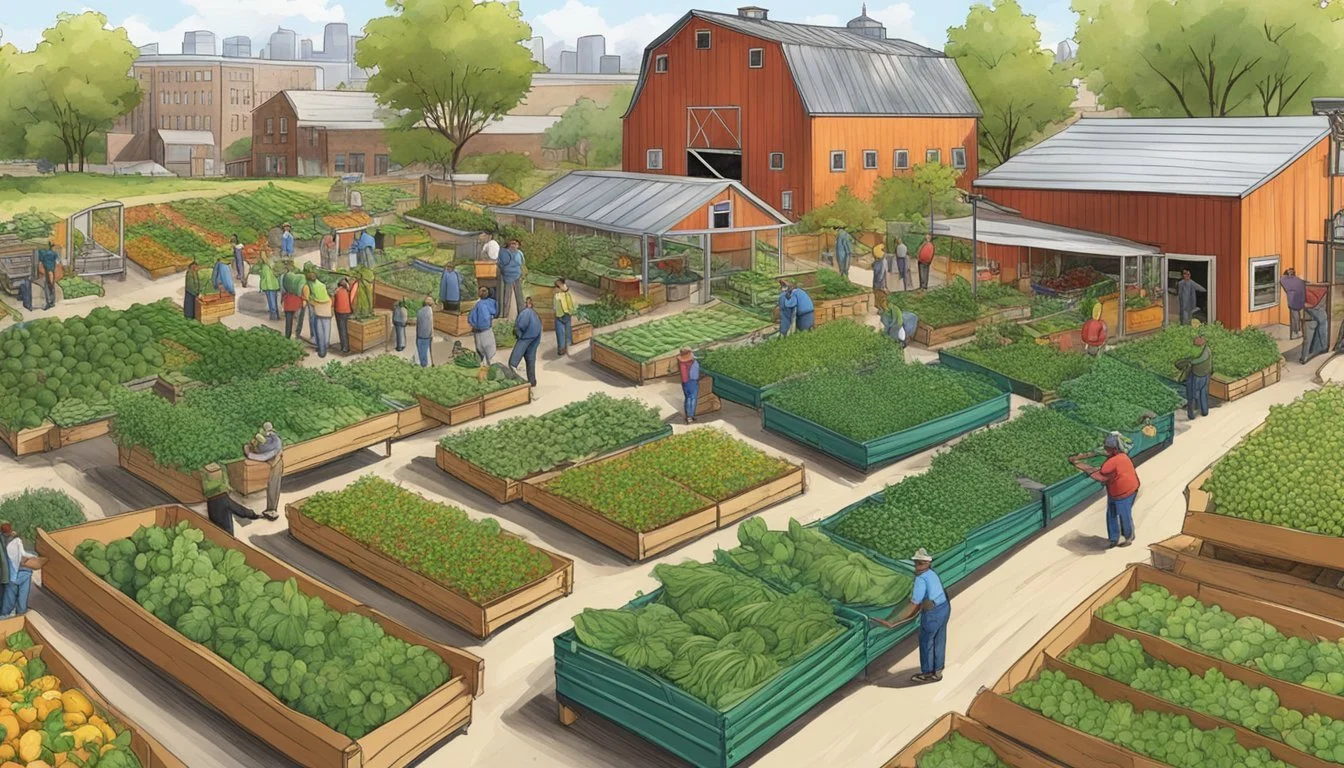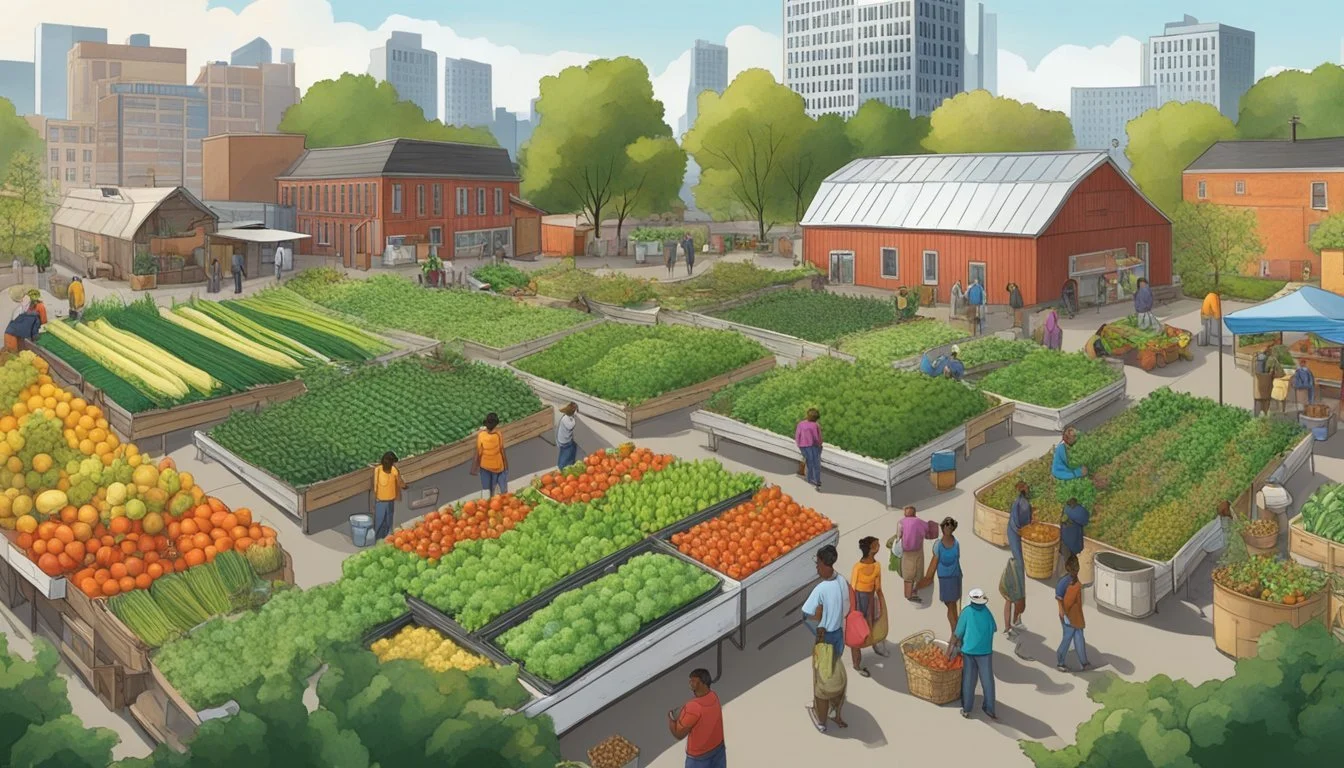Community Supported Agriculture (CSA) in Detroit, MI
A Guide to Local Farm Partnerships
Community Supported Agriculture, or CSA, is a flourishing model of farming and food distribution in Detroit, Michigan. This subscription-based system allows residents to buy seasonal produce directly from local farmers, forging a relationship that benefits the consumer, the farmer, and the environment. With various CSA options available, Detroiters can access fresh, local, and often organically grown produce, supporting sustainable agriculture and contributing to the revitalization of the local economy.
In Detroit, the CSA model is not just about the food; it's about community building and food security. Organizations like City Commons CSA represent a network of small-scale farms operating cooperatively to provide a diverse array of vegetables and other farm products. These cooperative efforts exemplify how CSA in Detroit extends beyond individual subscriptions to include food security initiatives and community empowerment.
Michigan's support for such agricultural initiatives is evident through various programs that collaborate with CSA farms. These collaborations are designed to enhance the reach of fresh, nutritious food to more residents, including those who utilize SNAP-Ed programs, thereby promoting healthy communities. The partnership of local farms with non-profit organizations and community educators is a testament to the multifaceted impacts of CSA programs in Detroit's urban landscape.
Understanding CSA
Community Supported Agriculture represents a pivot towards sustainability and community engagement in the Detroit food landscape. It is a model where consumers support local farms upfront, sharing the risk and bounty of agricultural production.
Defining Community Supported Agriculture (CSA)
Community Supported Agriculture, or CSA, is a subscription-based model of farming and food distribution. A consumer purchases a "share" in a farm's seasonal production and, in return, receives regular distributions of the farm's bounty throughout the growing season. This model is a commitment between local farmers and community members, where mutual support is key. Subscribers often pay for their share before the season begins, providing farmers with needed capital to cover upfront expenses.
Share Types: Various, often depending on farm offerings (e.g., vegetables, fruits, herbs, eggs).
Subscription Length: Seasonal, typically ranging from 10 to 25 weeks.
Distribution: Weekly or bi-weekly pick-up at designated locations such as farmers markets.
Benefits of CSA to Consumers and Producers
For Consumers:
Access to fresh, locally-grown produce that often uses organic and sustainable practices.
A deeper connection to the source of their food and understanding of food production.
For Producers:
Upfront capital for the growing season.
A guaranteed market for their produce, alleviating marketing and selling pressures.
The ability to plan production more efficiently, reducing waste.
Mutual Benefits:
Strengthens the local food system and economy.
Fosters a sense of community through direct, transparent relationships between producers and consumers.
Encourages sustainable agriculture by supporting farms committed to ethical farming practices.
CSA in Detroit: An Overview
Community Supported Agriculture (CSA) in Detroit has become an increasingly popular way for residents to access fresh, locally-grown produce. With an emphasis on sustainability and supporting local economies, CSA programs in the city play a pivotal role in the urban food system.
History of CSA in Detroit
Detroit has seen a resurgence in agriculture that harkens back to the city's agrarian roots. Amidst this resurgence, CSA programs started to gain traction as a means to bridge the gap between local farmers and consumers. These programs solidified community relationships while providing an economic base for farmers to sustain their operations.
Current State of CSA Programs
CSA programs currently in Detroit have diversified, offering an array of options to consumers. Typically, a subscription to a CSA involves a seasonal, upfront payment in exchange for a share of the harvest, which often includes a variety of vegetables and sometimes other farm products. City Commons is a notable multi-farm CSA, consisting of a cooperative of Detroit farms emphasizing sustainable agriculture. Members pick up their shares at designated locations throughout Detroit, MI.
Key CSA Farms in Detroit
Several farms stand out in the Detroit CSA landscape:
Keep Growing Detroit: Renowned for its commitment to organic and sustainable practices, this farm offers a 10-week CSA subscription and is stringent about soil health.
City Commons CSA: As a cooperative effort of Detroit farms, City Commons provides several CSA options, drawing from the collective bounty of its member farms.
Deeply Rooted Produce: Emphasizes a zero-waste approach and increases access to local produce through a mobile grocery. They grow organic produce and support local, family-owned farms.
How CSA Works
Community Supported Agriculture in Detroit offers a mutual relationship between local farms and community members. Consumers invest in local farms by purchasing shares, and in return, they receive a portion of the harvest throughout the growing season. This model emphasizes fresh, sustainable produce and supports the local economy.
Membership and Subscription Models
Membership in a CSA begins when a customer purchases a share. In Detroit, a subscription might run on a weekly, monthly, or seasonal basis, catering to differing consumer needs. Prices may vary depending on the length and type of subscription, with options such as:
Weekly Share: Ideal for small households or individuals.
Monthly Share: Suitable for regular customers who enjoy seasonal variety.
Seasonal Share: Best for those who are committed to supporting a farm through the entire growing season.
Seasonality and Crop Selection
Farms plan their crop selection around the local growing season, ensuring that members receive a variety of fruits and vegetables at the peak of freshness. Detroit CSA farms typically grow a range of produce, including:
Fruit: Apples, berries, peaches
Vegetables: Tomatoes, leafy greens, root vegetables
The crops provided in shares reflect the seasonal nature of farming, and members should expect fluctuations in the kinds and quantities of produce they receive.
Distribution of Produce
Distribution methods for CSA shares in Detroit can include on-farm pickup, community drop-off points, or even home delivery. A typical distribution schedule would be:
On-farm Pickup: Members collect their shares weekly at the farm.
Community Drop-off: Shares are dropped at designated locations for convenient pickup.
Home Delivery: For an additional fee, some CSAs offer the convenience of home delivery of shares.
Benefits of Going Local
Community Supported Agriculture in Detroit represents a robust approach to food sourcing that provides numerous advantages. It fosters a direct partnership between consumers and producers that bolsters the local economy, environment, and agricultural community.
Support for Local Farmers
Local farmers in the Detroit area gain a stable market for their produce through CSAs, ensuring they can count on financial support from the community. By subscribing to a CSA, consumers directly invest in Michigan farms, which helps sustain farming operations and encourages the preservation of local agriculture.
Environmental Advantages
Farmers in Detroit who participate in CSAs often employ sustainable agricultural practices. This not only maintains soil health but also reduces the carbon footprint associated with transporting food over long distances. Opting for local CSAs means contributing to practices that are more in harmony with the region's ecology.
Economic Impacts on MI Community
By supporting CSAs, the community reinvests in Michigan's economy. Local farming operations keep financial resources within the state, contribute to job creation, and stimulate the economic cycle in the agricultural sector. This economic impact is a testament to the power of local consumer choices in shaping resilient, community-based food systems.
Organic and Sustainable Practices
Community Supported Agriculture (CSA) in Detroit has embraced organic and sustainable methods, ensuring that both land and communities benefit from ecologically responsible farming practices. These farms often highlight the absence of chemicals and the use of organic practices which adhere to strict standards.
Organic Certification and Standards
Organic farming in Detroit's CSAs requires adherence to established standards and typically involves obtaining organic certification. This process confirms that no synthetic pesticides or fertilizers are used, and that practices align with government-regulated organic protocols. Certified organic farms in the area not only abstain from chemical use but also focus on long-term soil health and sustainable crop production.
Soil Health and Crop Rotation
Key to organic agriculture is the practice of no-till soil management, which minimizes disturbance to the soil and maintains its structure and biodiversity. CSAs in Detroit prioritize soil health, employing crop rotation strategies to prevent soil depletion and to manage pests naturally. Crop rotation also plays a crucial role in nutrient management, breaking cycles of pests and diseases and improving soil fertility without the need for synthetic inputs.
Biodiversity and Pest Management
CSAs in Detroit have adopted biodiversity as a core principle of sustainable agriculture. A variety of crops are cultivated, fostering a balance that deters pest populations and reduces the need for interventions. Farmers typically employ integrated pest management strategies which may include introducing beneficial insects and using natural predators to minimize pest impact, thereby following sustainable methods that protect both crops and ecosystems.
The CSA Season in Detroit
The CSA season in Detroit offers a diverse range of produce spanning from spring to fall, with planting preparations setting the stage for a cycle of growth and harvest.
Seasonal Calendar for CSA
Spring (May-June): Participants can expect the season to begin with a variety of leafy greens and early vegetables. Herbs such as cilantro and parsley start to appear, along with a selection of edible flowers that can be used for garnishing.
May: Planting starts, and early greens such as spinach and kale are available.
June: A broader variety of vegetables come into season, including radishes and snap peas.
Summer (July-August): This is the peak period with the most abundant variety, including tomatoes, peppers, cucumbers, and summer squash.
Fall (September-October): Late-season offerings include robust root vegetables and some cooler-weather crops may reappear, like greens and certain herbs.
October: The transition to root vegetables and hardier greens, such as collard greens, begins.
November: The CSA season typically wraps up with final harvests, including squashes and pumpkins.
What to Expect Each Season
Spring: In spring, members receive cool-weather crops such as lettuce, broccoli, and herbs like dill. It's a season of rapid growth, but the selection might be more limited compared to summer months.
Summer: Through summer, the variety and volume increase, ranging from zucchinis to fresh berries. This is also the time when flowers are at their most vibrant, attracting pollinators to the CSA farms.
Fall: As the season concludes, a shift to heartier produce occurs. Expect squashes, carrots, and potatoes which are staple storage vegetables that last well into winter. Herbs may be provided in larger quantities for preservation purposes.
Preparations and Planting
Preparation for the CSA season begins well before May. Farms engage in soil testing and preparation, ensuring sustainable and organic cultivation methods. Planting is staggered throughout the spring months to ensure a continuous harvest:
Soil Preparation: Farms ensure nutrient-rich, safe soil through proper organic practices and tests.
Planting Schedule: Starts with hardy spring crops, followed by summer and then fall plantings to maximize the growing season.
By understanding the CSA season in Detroit, members can align their expectations with the rhythm of local agriculture and enjoy the freshest produce as it comes into season.
Community and Education
In Detroit, Michigan, the CSA model serves not only to provide fresh produce but also plays a crucial role in building community ties and fostering education around sustainable practices. Through engaging events, dedicated volunteer efforts, and hands-on learning, residents are empowered to take part in the local food system.
Community Events and Workshops
City Commons CSA and Keep Growing Detroit are known for offering educational workshops and community events that focus on sustainable agriculture, organic farming practices, and seasonal cooking techniques. These events not only educate participants on the benefits of local food systems but also strengthen community bonds by bringing residents together with a common purpose.
Volunteering Opportunities
Volunteer programs play a pivotal role in the operation of Detroit's CSAs. They provide individuals with an avenue to contribute to their local food systems. At various community gardens across the city, volunteers can get their hands dirty learning about urban farming, and in the process, contribute to the cultivation and distribution of fresh produce within their communities.
Educational Outreach
Detroit CSAs are committed to educational outreach, targeting diverse audiences ranging from school children to adults. Keep Growing Detroit emphasizes the use of organic and sustainable farming practices, which is disseminated through their CSA and education programs. Such initiatives often lead to an increased awareness of food security issues and encourage healthier eating habits within the community.
Challenges and Considerations
In Detroit, the development and success of Community Supported Agriculture (CSA) face several challenges. These range from logistical hurdles to weather-related issues, all of which impact the sustainability and operation of CSA programs.
Logistical Hurdles
CSA programs in Detroit need to address transportation and distribution of produce to their subscribers. Ensuring fresh, organic produce reaches consumers in a timely manner requires a robust distribution network. Farms have to develop systems to manage weekly deliveries that maintain product quality.
Individual CSAs in Detroit have to navigate the complexities of urban farming spaces. Land acquisition can be complicated, and managing small, dispersed plots of land throughout an urban environment poses a unique set of logistical challenges.
Weather and Climate Issues
Detroit's CSA farms face the unpredictability of weather patterns, which greatly influence crop yield and variety. The fluctuating temperatures and severe weather can threaten crops and interrupt supply to CSA members. They must adapt to these changes with resilient farming practices.
Extended periods of extreme weather, whether it be excessive rainfall or drought, can result in the loss of crops or soil degradation. CSA farms have to invest in infrastructure and methods that mitigate the risks posed by climate-related challenges.
Long-Term Sustainability
The sustainability of CSA in Detroit rests on their ability to maintain soil health and biodiversity. Farms must employ organic and sustainable practices, often with a requirement to pass soil tests to ensure the long-term viability of the land.
Economic sustainability is another hurdle. CSA operations must balance the costs of sustainable farming with affordable subscription prices to ensure access for all community members while remaining financially viable.
In Detroit, CSA programs are not only about the produce but also about community building. Solutions to these challenges must foster engagement and education to perpetuate the CSA model's growth and benefits, making it a critical part of a sustainable local food system.
Future of CSA in Detroit
Community Supported Agriculture (CSA) in Detroit is evolving with new practices in urban farming and increased focus on local food systems that promote food security. The transformation of this model includes innovative techniques, broader accessibility, and enhanced community impact.
Innovations in Urban Agriculture
Detroit's urban farms are adopting cutting-edge practices to maximize efficiency and sustainability. This includes utilizing abandoned spaces for cultivation, implementing soil regeneration techniques, and incorporating green technologies. Urban farms are becoming hubs for innovation, often serving as educational centers where community members can learn about sustainable practices.
Expanding the CSA Model
The CSA model is moving beyond traditional frameworks, broadening participation. Initiatives like Michigan Farm to Family: CSA (MF2FCSA) demonstrate the potential for flexible payment options, making fresh produce more accessible. These programs often come with nutrition education, teaching members how to integrate fresh foods into their daily meals.
Strengthening Food Security
CSAs are instrumental in bolstering Detroit's food security. By connecting consumers directly with local farms, CSAs ensure a consistent supply of fresh, organic produce. Programs working with low-income families are pivotal, offering reduced-price shares and breaking down barriers to healthy food choices. These partnerships are key to building a more resilient food system in the city's urban landscape.

